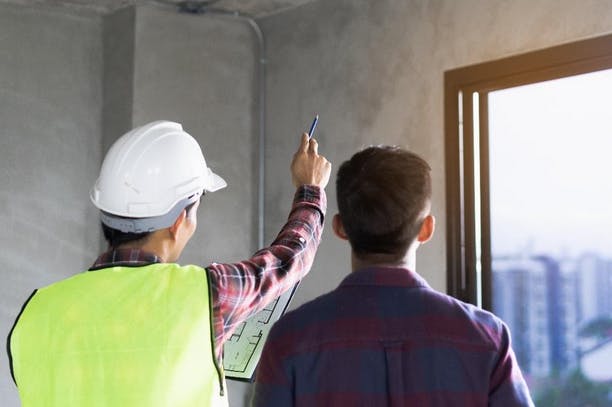Sellers thinking of putting their home on the market will have a lot of decisions to make. One of them is the home inspection – and the debate over whether to conduct one before listing the home or wait for the buyer to possibly take that step.
Inspections will uncover a lot of insights. They note any deferred maintenance, defects with the structure, and the remaining useful life of major appliances and systems such as the hot water heater.
There are calculations involved – both financially and strategically. In a sellers’ market (which it has been in our area for nearly a decade), there appears to be little incentive to spend the $350-$600 on a pre-listing inspection because it’s likely that multiple buyers will be competing for the home.
One or more of those buyers may make an offer, including bids that waive the home inspection to help get an advantage over other the competition. In that case, there is no need for a pre-inspection. The home is essentially being sold as-is, with some exceptions for items legally required (smoke detectors, carbon monoxide monitors, railings on certain landings and steps).
I don’t recommend a pre-listing inspection in many cases but when I do there are legitimate reasons to back it up.
The No. 1 reason is to help position the home in the best light, to get top dollar and likely sell faster. A home that has a new furnace or roof – based on the inspector’s recommendations – are good selling points and can help raise the chances of attracting more offers. And a seller can justify listing at a higher price when the home is in tip-top shape.
I like to paint a picture for sellers who are on the fence when it comes to pre-listing inspections. I simply ask whether they would rather take care of the must-have items on their own time after shopping for the right price or scramble after being blindsided by a list of buyer wants following the inspection that, for example, calls for fixing a crumbling chimney or malfunctioning heat pump. (A good buyer broker will coach their clients on what issues to prioritize and which contractors to make the repairs, taking negotiating control away from the homeowner and at his/her expense, a proposition that could cause the deal to fall through if sellers reject the requests.)
The inspection response could include cash concessions at closing to allow the buyer to complete repairs after move-in. Sellers can eliminate (or at least reduce) the contract negotiations with buyers by having already addressed the key repairs – a great example of time saved and potential headache removed.
In a red-hot market (I’m talking to you Eastside and South King County!), a pre-inspection conducted by the seller may eliminate the need for buyers to get their own – or, worse, have several prospective buyers order inspections before considering an offer (a nightmare scenario when the home is occupied and inspectors are knocking on the door seemingly every few hours). The pre-inspection report is unbiased and professionally prepared, even though it was purchased by the seller, and a buyer typically can ask to see the full report to judge for themselves.
An inspection report can be a two-edged sword. Major findings – cracks in the foundation or an aging electrical system – can be a setback to a sellers’ plan to put the home on the market by a certain time. The issues may need to be addressed first. Potentially worse, if a seller rejects the findings or only has funds to cover some repairs, he/she is required to include the defects in the Seller Disclosure Statement, which is shared with buyers. Offering that information could be harmful in a homeowners’ ability to sell the property. Conversely, what a seller doesn’t know about the home certainly cannot be included in the disclosure statement.
One of the nice features about working with a John L. Scott Real Estate professional is that there is a program available to sellers who may not be able to afford repairs. No problem! John L. Scott’s Market Ready Plus + will help sellers coordinate home improvements, provide an advance to complete the work and move forward confidently with a property listing that is competitive and market ready. Sellers pay for the approved enhancements at closing, without fees or interest.
Remember to keep those repair receipts! Sellers can deduct upgrade costs – from painting to window replacements – if the expenses were made within 90 days of the home sale.
To be sure, not all home sales are alike and that’s true for whether to order an inspection. Let me help you weigh the positives against the negatives as you prepare to sell your home.




